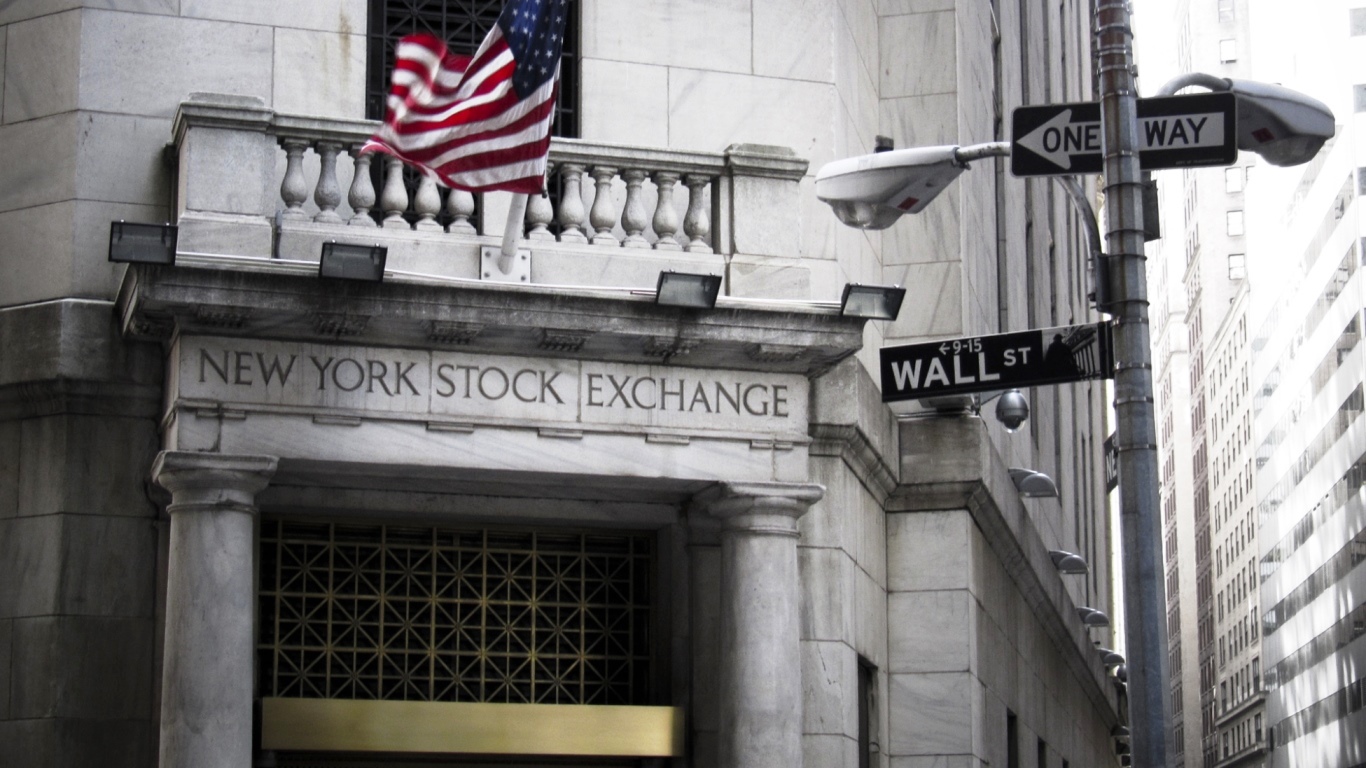
After one of the most brutal Decembers for stock investors in many years, we turned the calendar page on a new year. While the volatility did not go away, the markets have seen some solid gains since the Christmas Eve lows. Judging by the most shorted stocks traded on the New York Stock Exchange between the December 31 and January 15 settlement dates, those sellers were looking for direction, as the short interest moves were mixed and mostly mild.
The stock at the top of the list, Chesapeake Energy, bucked the trend with another sizable increase in the number of its shares short during the two-week period. On the other hand, Bank of America and Ford led the short interest decliners in that time.
Note that the five most shorted NYSE stocks had more than 115 million shares short at the end of the most recent settlement period. In fact, all but one of the top 10 had short interest of more than 100 million shares.
Chesapeake Energy
> Shares short: More than 222.63 million
> Change from prior period: +21.1%
> Percentage of float: 24.9
With the second such surge in the number of Chesapeake Energy Corp.’s (NYSE: CHK) shares short, this oil and gas company affirmed its spot at the top of the list. The last time short interest was more than 200 million was last April. At the posted daily average trading volume on the latest settlement date, it would take about four days to cover all the short positions.
Chesapeake released preliminary 2018 figures during earlier this month and investors were pleased. Its share price rose more than 40% in the two weeks, much of that gain coming after the announcement. The S&P 500 saw a gain of around 6% in that period.
The stock has retreated since the settlement date, and it ended Friday at $2.78 a share. That still is more than 32% higher year to date. Shares have changed hands as high as $5.60 and as low as $1.71 in the past year.
General Electric
> Shares short: More than 151.27 million
> Change from prior period: −0.5%
> Percentage of float: 1.8
General Electric Co. (NYSE: GE) stayed into second place despite little change in the number of its short shares in the initial two weeks of this month. Note that the prior figure was the highest level of short interest since last March. The daily average trading volume shrank somewhat during the latest period, but the days to cover remained at less than one.
GE was one of several companies that seemed to be struggling to survive in 2019. Yet, the shares ended the two weeks more than 16% higher, though it had been up more than 20% earlier in the period. In the first two weeks of this year, the Dow Jones industrial average rose about 5%.
GE’s shares were last seen trading at $9.16, which is up from a multiyear low of $6.66 reached last month. The 52-week high, from almost a year ago, was $16.43 a share. The stock has gained about 21% since the beginning of 2019.
Snap
> Shares short: More than 139.28 million
> Change from prior period: +2.2%
> Percentage of float: 24.2
That modest gain in the number of its shares short was enough to lift Snap Inc. (NYSE: SNAP) into third place on the list. And it was the highest level of the social media and camera company’s short interest since November. At the mid-month daily average trading volume, it would take about nine days for investors to cover all short positions.
The stock was downgraded by Goldman Sachs and others but upgraded by Cowen in the first two weeks of this month. The shares ended the latest settlement period more than 19% higher, though they pulled back immediately afterward.
The shares were last seen changing hands at $6.40. That compares to the 52-week low of $4.82 reached a little more than a month ago. The 52-week high, seen almost a year ago, was $21.22 a share. The stock now is up around 16% year to date.
Bank of America
> Shares short: More than 132.40 million
> Change from prior period: −8.2%
> Percentage of float: 1.4
Bank of America Corp. (NYSE: BAC) drops one spot down the most shorted NYSE stock list for the second period in a row. The latest reading was the smallest number of shares short since last November. After a notable decrease in the daily average volume during the most recent period, it would take about two days to cover all short positions.
Bank of America was one of the banks recently identified as receiving the most customer complaints last year. Short sellers watched its share price increase more than 9% by the latest settlement date and keep rising afterward.
The stock closed most recently at $29.58 a share, after climbing around 20% since the start of the year. The shares have changed hands between $22.66 and $33.05 apiece in the past 52 weeks, with that low seen on Christmas Eve.
J.C. Penney
> Shares short: More than 120.05 million
> Change from prior period: −1.8%
> Percentage of float: 39.9
That was the lowest number of J.C. Penney Co. Inc. (NYSE: JCP) shares short since last April. It would take about 10 days for sellers to cover their short positions at the latest daily average trading volume. Note that this stock had topped the most shorted NYSE stocks list back in November.
This struggling retailer is poised to shutter more stores this spring, as the new CEO tries to find a way to keep the company afloat. The share price ended those two weeks almost 30% higher, but note that it had been up more than 38% during the interval.
However, the stock pulled back sharply afterward but has recovered and closed most recently at $1.35 a share. That is nearly 30% higher year to date. The 52-week low, seen late last month, was $0.92, while the 52-week high of $4.75 was reached early last year.
Alibaba
> Shares short: More than 116.49 million
> Change from prior period: 1.8%
> Percentage of float: 4.5
This is the greatest level of short interest at Alibaba Group Holding Ltd. (NYSE: BABA) since last August. And note that the daily average volume has decreased for three consecutive periods, so as of mid-January it would take about seven days for short sellers to cover their positions.
Some are predicting that the Chinese e-commerce giant will make a large and splashy acquisition in Europe this year. The share price ended the first two weeks of January more than 12% higher, and since then it has continued to rise.
The stock closed Friday’s trading at $159.21 a share. That is about 16% higher than at the first of the month. The 52-week low of $129.77 was seen during the Christmas Eve sell-off, and the 52-week high of $211.70 was reached last June.
And the Rest
Rounding out the top 10 were Rite Aid Corp. (NYSE: RAD), Sprint Corp. (NYSE: S), Weatherford International PLC (NYSE: WFT) and CenturyLink Inc. (NYSE: CTL). The two telecoms rejoined the top 10 most shorted NYSE stocks in the most recent period with gains of 8% or so. The other two saw very modest declines in the numbers of their shares short.
Ford Motor Co. (NYSE: F) and Infosys Ltd. (NYSE: INFY) were the ones that slipped out of the top 10 in this period. Lingering along with them outside the spotlight of the top 10 was Energy Transfer L.P. (NYSE: ET). Meanwhile, EnCana Corp. (NYSE: ECA) saw a double-digit percentage gain in the number of its shares short, but yet not enough to get it close to the top 10.
Also note that short sellers piled on Bristol-Myers Squibb Co. (NYSE: BMY) — a gain of well more than 200% — between the settlement dates, but so far it remains well outside the top 10.
100 Million Americans Are Missing This Crucial Retirement Tool
The thought of burdening your family with a financial disaster is most Americans’ nightmare. However, recent studies show that over 100 million Americans still don’t have proper life insurance in the event they pass away.
Life insurance can bring peace of mind – ensuring your loved ones are safeguarded against unforeseen expenses and debts. With premiums often lower than expected and a variety of plans tailored to different life stages and health conditions, securing a policy is more accessible than ever.
A quick, no-obligation quote can provide valuable insight into what’s available and what might best suit your family’s needs. Life insurance is a simple step you can take today to help secure peace of mind for your loved ones tomorrow.
Click here to learn how to get a quote in just a few minutes.
Thank you for reading! Have some feedback for us?
Contact the 24/7 Wall St. editorial team.

 24/7 Wall St.
24/7 Wall St. 24/7 Wall St.
24/7 Wall St.



